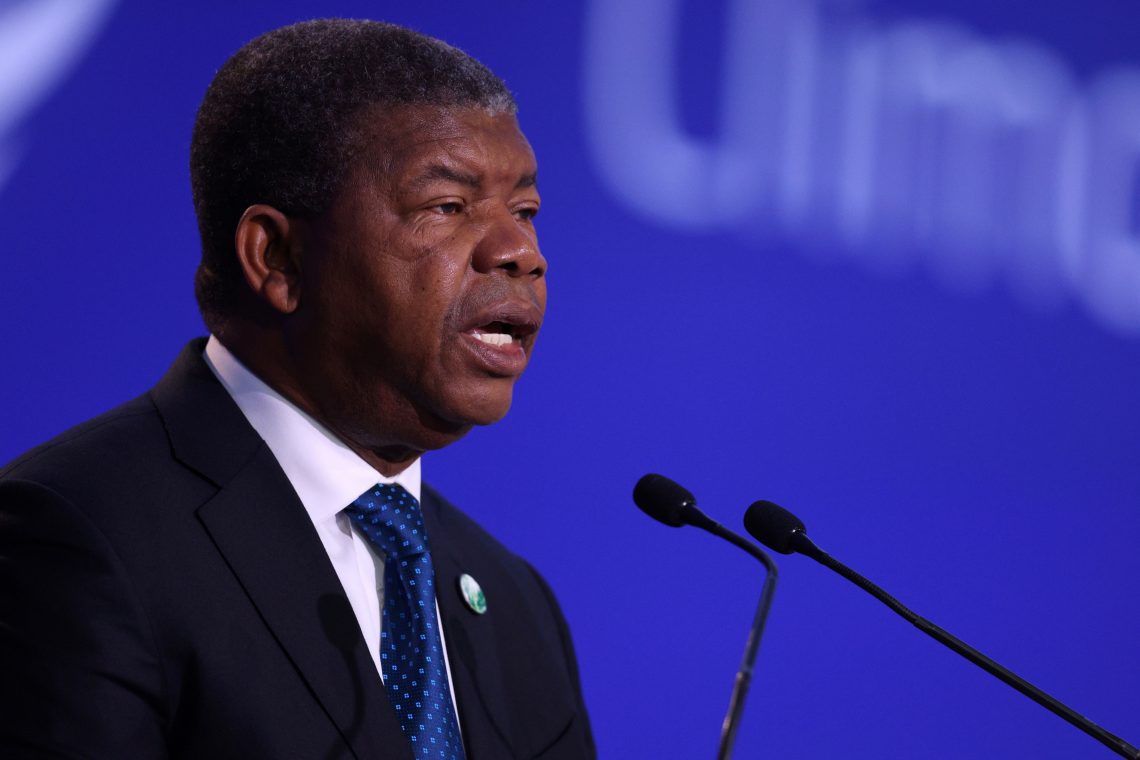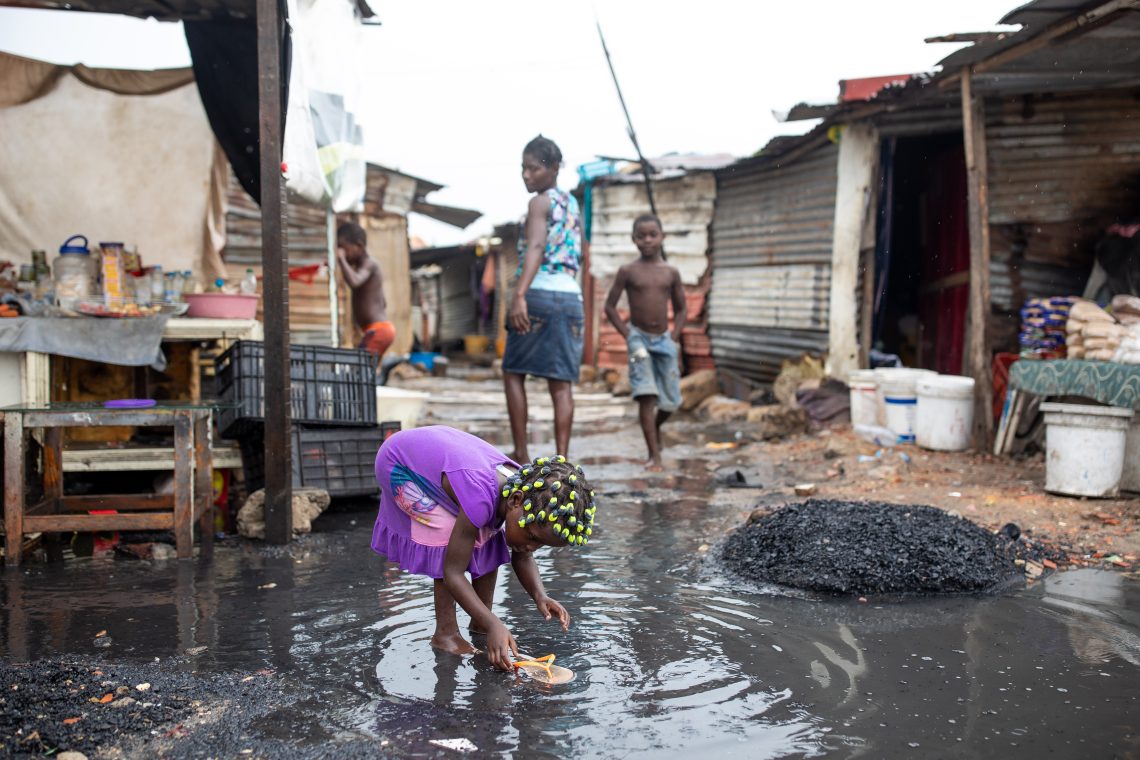Angola’s ruling party is losing its luster
Discontent with the status quo led to a close 2022 election in the ex-Portuguese colony, which is still healing from civil war and facing tough economic challenges.

In a nutshell
- Extreme poverty is stunting a growing young nation
- Natural resources can be better employed for prosperity
- The ruling party since 1975 independence is losing favor
On August 24, voters in oil-rich Angola returned the long-ruling People’s Movement for the Liberation of Angola (MPLA) to power, with party leader Joao Lourenco reelected to a second five-year term as president.
But the contest was the closest in electoral history between the country’s two leading parties, successors of the main anti-colonial factions who fought each other in a civil war from 1975 – when Angola gained independence from Portugal – until 2002.
The election’s runner-up party – the National Union for the Total Independence of Angola (UNITA), led by Adalberto Costa Junior, and its allies – got 44 percent of the vote to MPLA’s 51 percent. In the 220-seat National Assembly, Angola’s parliament, the results translate into 124 seats for MPLA and 90 for UNITA and its opposition allies, while the remaining six seats were won by three minor parties that got only 1 percent of the vote each.
The outcome in the southwestern coastal African nation of 35 million people, two-thirds of whom are younger than 24, is seen as a sign of mounting frustration with the status quo. Most of the 14 million voters stayed home, creating the lowest general election turnout (about 46 percent) in many years.
Much of the discontent is over the economy and vast disparities in wealth. Nearly half of the nation lives in extreme poverty – defined as earning $1.90 or less per day. The Borgen Project, a nonprofit organization, says the primary causes of Angola’s economic hardships are “the devastation of war, the high fertility rate, limited access to healthcare, lack of quality education for all and income inequality partially due to government corruption.” At the same time, oil wealth has made the capital of Luanda an expensive place to live, with high-profile pockets of affluence and luxury.
Through war and peace
Two figures have dominated Angolan politics since its independence from Portugal on November 11, 1975.
Jose Eduardo de Santos served as MPLA leader and Angolan president for 38 years, from 1979 to 2017, before turning over leadership to Mr. Lourenco. During the civil war, the Marxist MPLA had the backing of the Soviet Union until its collapse in 1991 and Fidel Castro’s Cuba.
The other dominant figure was Jonas Savimbi, leader of the UNITA movement since the 1960s. The party represented the largest Bantu ethnic group, the Ovimbundu. Mr. Savimbi won the support of such African nations as South Africa, Morocco and Ivory Coast, as well as Western powers like the United States and France. He joined forces with the National Front for the Liberation of Angola, or FNLA.
Angola’s civil war outlasted the Cold War, leading foreign powers to end their support for the rival rebels. Ultimately, the MPLA prevailed over UNITA-FNLA. Mr. Savimbi was killed in battle on February 22, 2002, paving the way for a peace agreement less than two months later.
President dos Santos helped secure a sustained peace by granting complete amnesty to UNITA leaders and militants. He also integrated senior UNITA officers and soldiers into the Angolan army, an important trust-building step.
Changing the leadership
More than 20 years after the peace agreement was signed, a general election in the summer of 2022 witnessed the latest evolution in the leadership of the two top parties and former civil war rivals.
Mr. Savimbi was succeeded by one of his inner-circle trustees, Isaias Samakuva, who held important positions in UNITA. Mr. Samakuva served as president of UNITA for 16 years, from 2003 until 2019.
Given the ruling party’s relatively narrow victory and the opposition’s claims of fraud, the government will need to reach out and meet the needs of a disenchanted and impoverished electorate.
In 2017, Mr. dos Santos decided to leave office due to serious health problems and backed General Lourenco, the nation’s defense minister since 2014, to lead the MPLA. Mr. Lourenco brought experience and strong connections with Angolan power structures, including the party, the army and state security institutions. He defeated Mr. Samakuva for the presidency in August 2017.
In November 2019, UNITA chose Mr. Costa Junior to replace Mr. Samakuva as leader, leading to an improved showing for the party in the 2022 election over the 2017 result, when UNITA got just 27 percent of the votes.
The 2022 election
The UNITA coalition alleged serious electoral fraud by the government, but the National Electoral Commission upheld the results. Protests took place during and after election day, especially by young people in Luanda. But Mr. Costa Junior, without formally recognizing the MPLA victory, said the opposition members of parliament would take their seats for the sake of peace.
UNITA managed to come within 500,000 votes of MPLA, which won 3.2 million votes nationwide. But UNITA won a strong majority (62 percent) in Luanda, which is also the largest city, home to 2.6 million people. MPLA won only 34 percent in the capital, a major setback in its traditional stronghold. Also, the northern exclave of Cabinda – a secessionist-minded source of oil wealth – voted massively for the opposition.

Economic prospects
Given the ruling party’s relatively narrow victory and the opposition’s claims of fraud, the government will need to reach out and meet the needs of a disenchanted and impoverished electorate. One way of doing so is to find investment and create jobs. To avoid a social crisis, a consensus is emerging that the government and opposition need to work together to avoid a repeat of the 27-year civil war that killed more than 500,000 people.
Oil-rich African nations such as Angola are getting an economic boost from Russia’s war against Ukraine, as European countries cut their energy purchases from Moscow. Angola, typically the second-leading oil producer on the continent, in August 2022 became Africa’s largest producer, with 1.17 million barrels per day (bpd) against Nigeria’s 1.13 million bpd. High oil prices – which peaked in 2022 at about $125 per barrel – are clearly in the country’s long-term interests, given proven reserves of nine billion barrels. In 2021, 84 percent of the nation’s $33.7 billion in exports came from oil, improving its trade balance even though half of the production went to China to pay off debts.
Hope for a better life is now placed on further reviving and modernizing an agriculture-based economy that, in the last years of five centuries of Portuguese colonial rule, transformed Angola into a significant exporter of food.
Angola is also rich in natural gas, ranking sixth in proven reserves among African nations. As the West reduces its dependence on Russian gas, Africa’s supply is becoming increasingly important.
But Angola still has not diversified its energy-based economy, leaving it susceptible to boom-and-bust market cycles. Moreover, not many residents have benefited from the oil and natural gas wealth. According to the African Development Bank, Angola’s economy shrank by 5.4 percent in 2020 and grew only 0.7 percent in 2021.
Russia’s war also brought higher food prices, exacerbating the effects of a 2021 drought – the most severe in 40 years in the southern agricultural provinces. The poor harvests and high costs have led to food insecurity for an estimated two million people.
Transition from oil, gas
Angolans have perhaps a stronger sense of national identity than many African countries, presenting the country as a melting pot of different tribes and ethnicities. This unity was forged, in part, by a civil war that those who lived through it are determined not to repeat.
Hope for a better life is now placed on further reviving and modernizing an agriculture-based economy that, in the last years of five centuries of Portuguese colonial rule, transformed Angola into a significant exporter of food. Restoring these capabilities was the subject of a September 13, 2022, World Economic Forum report arguing that the country’s agricultural sector could become “Africa’s powerhouse.”
The report noted that the sector’s share of Angola’s gross domestic product improved from 5 percent to 10 percent between 2011 and 2017. It underlined “the abundance of arable land” and “the diversity of climatic conditions” as important assets. The civil war is blamed for the collapse of the agricultural sector. These potential strengths, along with vast mineral wealth, may help public officials and opposition political leaders find common ground in a politically divided nation.
Scenarios
President Lourenco and opposition leaders such as Mr. Costa Junior could put aside mutual grievances and concentrate on decisively transforming the economy in the vast country of more than 1.2 million square kilometers, more than twice the size of France. Besides its abundance of natural resources, Angola offers the West and other investors potentially greater stability than some sub-Saharan countries such as Nigeria and South Africa. But that holds true only if government and opposition leaders recognize the need to avoid a fractured society in which young urban dwellers see only a dim and dangerous future.








